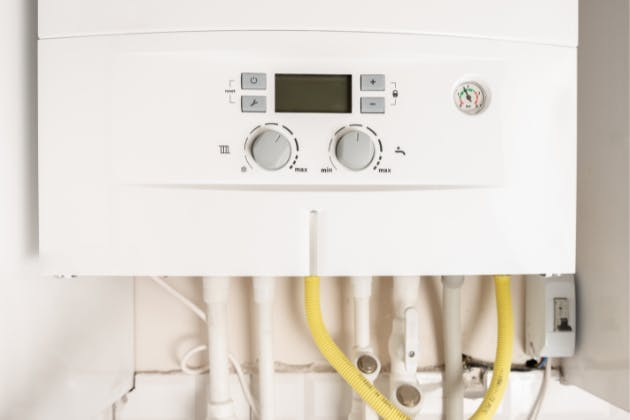Every year, thousands of homes across the UK face gas-related incidents that could have been prevented. Gas safety involves proper maintenance, regular checks, and knowing how to respond to potential hazards. Whether you're a new homeowner or have lived in your property for years, staying informed about gas safety is crucial.

How to stay gas safe at home?
Recognise Gas Leaks
You can be put into a dangerous situation if you think you are experiencing a gas leak, especially because it can put lives in risk. Understanding the warning signs of a gas leak and what to do in that case is essential.
The following are typical signs of a gas leak:
- A sulphurous or rotten egg smell
- A gas appliance whistling or hissing
- Higher than usual gas usage
If you discover a gas leak, you must act right away. Turn off the gas at the metre, shut all doors and windows and ventilate the area. Avoid utilising electrical switches and appliances as they could spark and burn the gas. Our heating engineers highly recommend leaving the property and giving the gas emergency hotline a call.
Gas Safety Tips
Regular Gas Safety Checks
Annual gas safety checks aren't just good practice—they're essential for maintaining a safe home. During these checks, a qualified engineer will conduct a thorough inspection of all gas appliances and test the gas pipework throughout your property. They will verify proper ventilation systems are in place and working correctly, assess all safety devices, and check gas pressure and flow rates to ensure everything meets safety standards.
Only Gas Safe registered engineers can legally perform these checks. They'll provide you with a Gas Safety Certificate upon completion.
Carbon Monoxide Safety
Carbon monoxide poses a particular risk because it's odourless and invisible, making it impossible to detect without proper equipment. To protect your home, install carbon monoxide detectors on each floor, ensuring they're placed near all gas appliances for maximum effectiveness. Make it a habit to test these detectors monthly and replace them according to the manufacturer's guidelines. It's also crucial to familiarise yourself with carbon monoxide poisoning symptoms, which include headaches, dizziness, nausea, and confusion. Quick recognition of these symptoms could save lives.
Maintaining Gas Appliances
Proper maintenance extends beyond annual checks. Throughout the year:
Keep ventilation points clear and unblocked Clean and dust around appliances regularly Monitor appliance performance for any changes Schedule servicing at recommended intervals Replace older appliances when recommended by professionals
Choose the right gas engineer
When you need gas work done, always:
- Verify the engineer is Gas Safe registered by checking their ID card
- Ask to see their qualifications for your specific type of work
- Keep records of all work carried out
- Get a carbon monoxide safety check as part of any boiler service
Book an Emergency Gas Service
Several important contact numbers should be kept readily available in case of emergency. The National Gas Emergency Service can be reached 24/7 on 0800 111 999. For local assistance, our Gas Safe registered engineers in Burnley, Rossendale, Ramsbottom and Rochdale can be contacted on 07791 802791.


